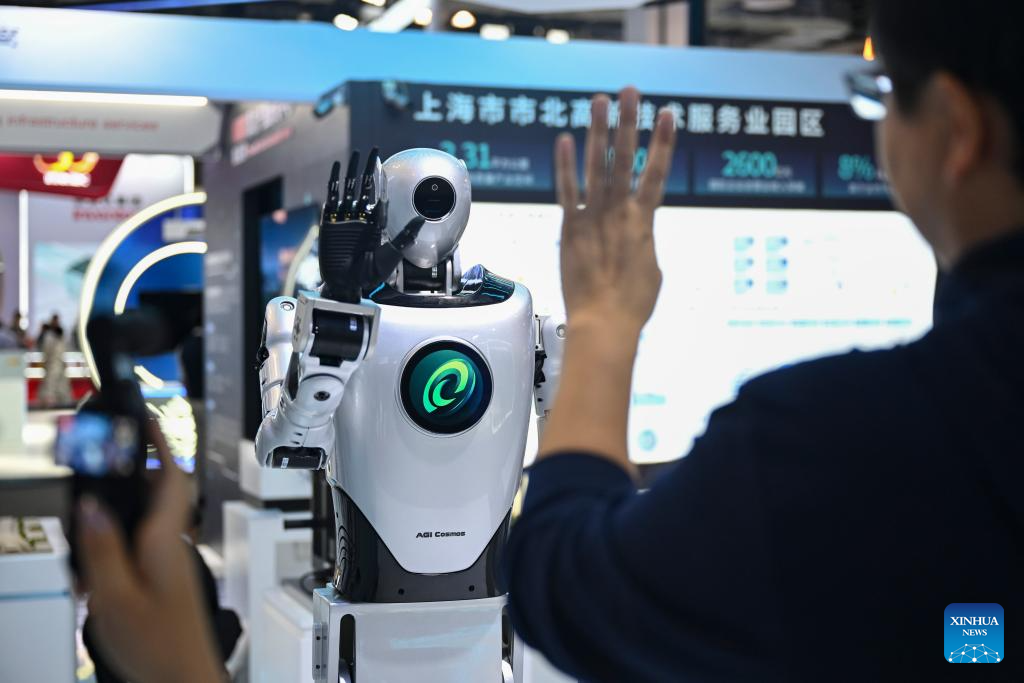
The 2025 World Artificial Intelligence Conference that concluded in Shanghai on Monday not only showcased the latest AI technology, but more importantly shed light on some major questions regarding the global governance of AI.
Only by establishing a consensus on how it is to be controlled and used can countries fully harness the beneficial power of AI while firewalling its harmful potentials.
Among the major players in the field, the United States is striving to maintain its dominance in AI by pushing companies such as OpenAI, Google, and Microsoft to take the lead in setting industry standards.
READ MORE: China's AI industry hailed as economic growth driver
Last week, the White House released "Winning the Race: America's AI Action Plan", which aims to consolidate the US' dominance in AI and its standard-setting. Prior to this, the US Bureau of Industry and Security released its Framework for Artificial Intelligence Diffusion to regulate the global spread of advanced AI technologies, particularly focusing on preventing access by US "adversaries" by means of export controls of advanced AI chips.
The European Union, which is wary of the big US high-tech companies dominating the technology, emphasizes extremely strict, if not harsh, regulation and is accordingly establishing a legal framework for some AI applications.
Some of the developed economies' approaches, which essentially restrict cooperation and monopolize rule-making, are beggar-thy-neighbor in both nature and in practice.
In contrast, it is fair to say that China is ensuring the influential know-how progresses in the right direction for the benefit of the whole of humanity by offering both its wisdom and its experiences as reference to enhance the global governance of AI. China insists that all countries have equitable and inclusive access to AI based on open source practices.
Chinese companies provide hardware, models, and cloud services to the world, helping to create an inclusive, open, sustainable, equitable, secure, and reliable digital and intelligent future for all. Most notably of course the Chinese company DeepSeek, whose open-source large-language model has demonstrated the potential to empower businesses and institutions in different fields.
And China has always actively participated in and promoted the formulation of rules for the global governance of AI with the aim of ensuring the technology is used inclusively, responsibly and safely.
In 2023, China put forward the Global AI Governance Initiative, which is based on full respect for the policies and practices of all countries and proposes a global governance framework for AI that rejects decoupling or discrimination in favor of openness, connectivity and equality.
At the just-concluded WAIC, which was attended by representatives from over 40 countries and international organizations, China proposed the Action Plan for Global Governance of Artificial Intelligence and the establishment of a global AI cooperation organization. These actions are concrete steps to help bridge the digital and intelligence divide, and promote the inclusive development of AI for the common good of humanity.
ALSO READ: Cooperation makes AI public good for world
These moves, which respond to the calls of the Global South, are conducive to constructing an inclusive governance platform based on public interests and the participation of various stakeholders. Fully implementing its relevant commitments under the United Nations' Pact for the Future — which includes the Global Digital Compact and the Declaration on Future Generations — to create an inclusive, open, sustainable, fair, secure, and reliable digital and intelligent future for all, China supports and maintains extensive consultation, joint construction and shared benefits.
Given its potential for shaping the future of humanity, for good or bad, the world cannot afford to allow AI to become a tool for geopolitical competition. Open dialogue, mutual understanding and cooperation are the key to guarantee that AI develops in the right direction of serving everyone, not just a few.


